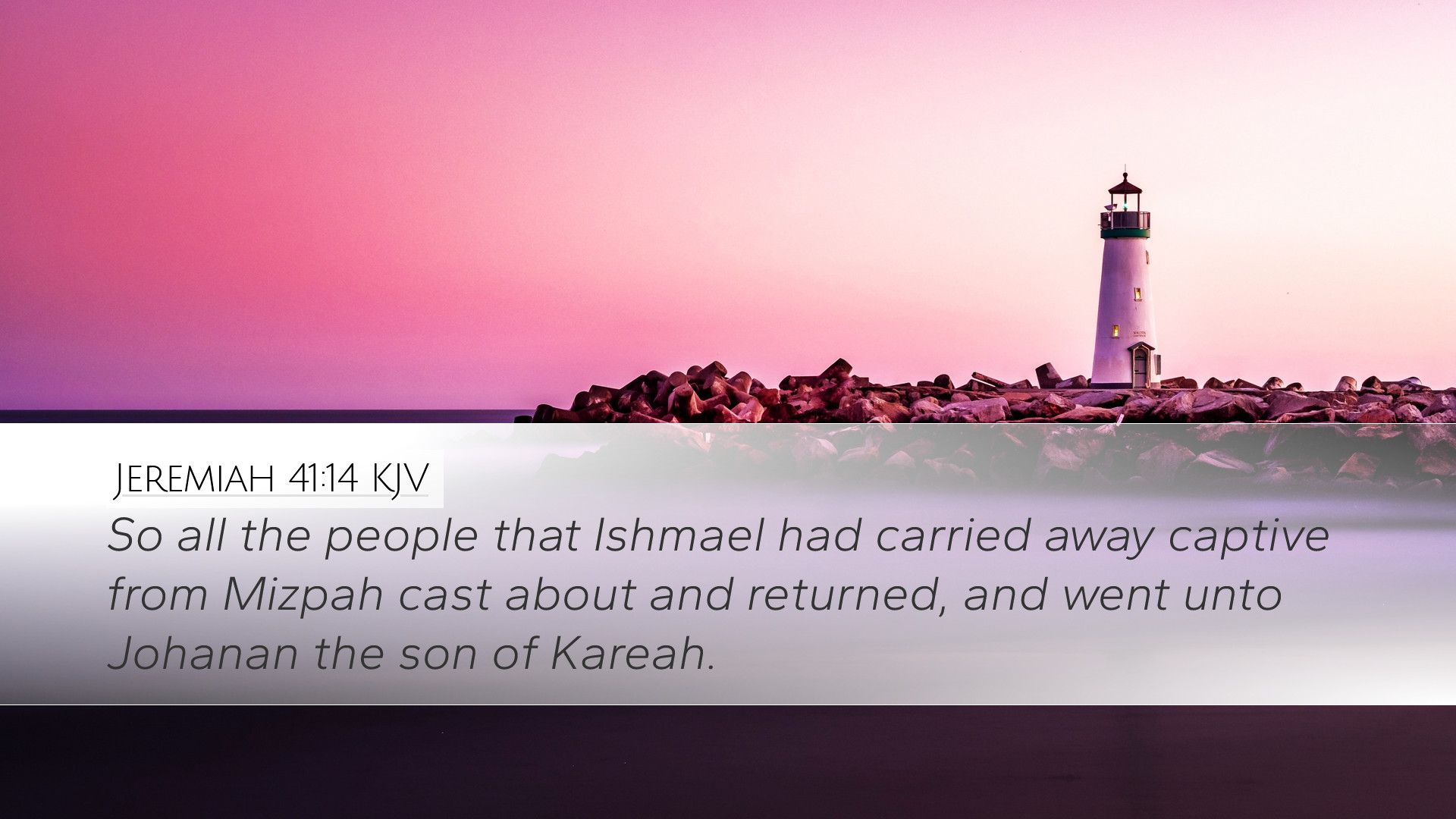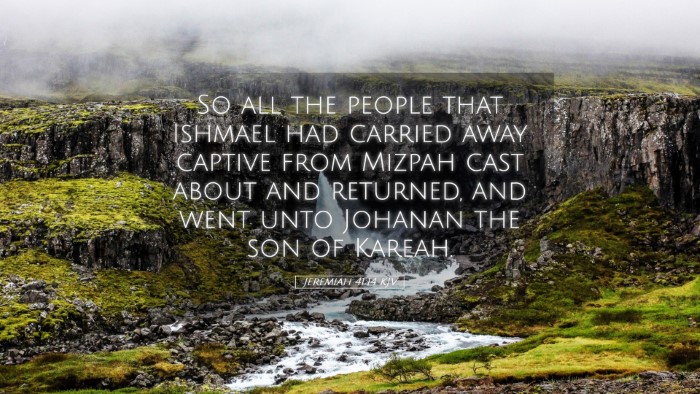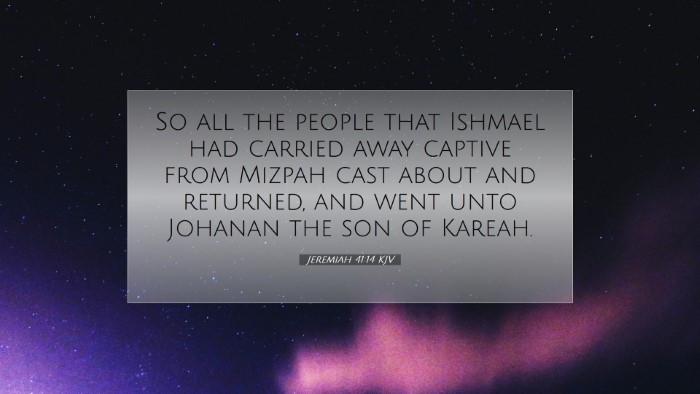Commentary on Jeremiah 41:14
In understanding Jeremiah 41:14, we must recognize the context of this passage, which takes place amid the turmoil following the destruction of Jerusalem. This commentary synthesizes insights from public domain commentaries, offering depth for pastors, students, theologians, and Bible scholars.
Contextual Background
The book of Jeremiah details the prophetic ministry during a time of national crisis for the people of Judah. They have faced the Babylonian siege, leading to the fall of Jerusalem and the exile of many inhabitants. The chapter in question addresses the aftermath of these events, particularly the tension between those left in Jerusalem and those in Babylonian captivity.
Verse Breakdown
Jeremiah 41:14 states:
"And they turned and went back to come to Gedaliah in Mizpah." (Jeremiah 41:14, ESV)
Key Themes
- Desperation and Fear: The fleeing remnants of Judah exhibit a significant level of fear and uncertainty. This illustrates the emotional state of a people who have just faced devastation.
- Leadership and Guidance: Gedaliah, appointed governor, serves as a figure of hope and security. The response to return to him showcases the necessity of leadership in times of crisis.
- Divine Sovereignty: This verse underlines God’s control over historical circumstances, where even the decisions of the people reflect His overarching plan for Israel.
Commentary Insights
Matthew Henry’s Analysis
Matthew Henry underscores the chaotic backdrop against which this verse occurs. He emphasizes that the people’s decision to return to Gedaliah indicates a recognition of the necessity for guidance in their tumultuous state. Fear of further violence prompted this action, reflecting a deeper dependence on divine providence.
Albert Barnes’ Perspective
Albert Barnes highlights the importance of Gedaliah as a divinely appointed leader. He notes that the decision to return to Gedaliah signifies a yearning for stability amidst chaos. Barnes also discusses the implications of this return, suggesting it demonstrates a collective awareness of the need for unity. The act of turning back signifies both hope for redemption and acknowledgment of their precarious situation.
Adam Clarke’s Commentary
Adam Clarke offers unique insights into the societal implications of this event. He notes that the people’s movement towards Gedaliah represents a critical moment of decision for the remnant of Israel. Clarke interprets this as an act of trust, albeit fragile, which reflects a larger theological theme of reliance on God’s appointed leaders during challenging times. He also comments on the social dynamics at play, asserting that the people were trying to reclaim their identity in the aftermath of disarray.
Theological Implications
This verse opens up discussions on several theological themes relevant for scholars and practitioners:
- The Importance of Leadership: In times of crisis, the role of a leader becomes paramount. This reflects the biblical narrative that emphasizes the shepherding nature of God’s appointed leaders.
- Human Vulnerability: The reaction of the people underscores a significant human tendency to seek guidance and reassurance in the face of fear and uncertainty, showcasing our dependence on the divine.
- Divine Providence: God orchestrates events and relationships, ultimately guiding His people through distress. The historical context serves as a reminder of faithfulness amidst suffering.
Practical Applications
For pastors and leaders today, Jeremiah 41:14 provides rich material for reflection and application:
- Leadership in Crisis: Emphasize the importance of being accessible and providing guidance during difficult times in the church community.
- Fostering Trust: Create environments where congregants feel safe to express their fears and uncertainties, mirroring the trust the people showed in returning to Gedaliah.
- Reassuring Presence: Like Gedaliah, leaders are called to demonstrate a calming and reassuring presence, offering hope and direction for the community.
Conclusion
Jeremiah 41:14 encapsulates a moment of decision for the remnant of Israel, emphasizing themes of leadership, fear, and divine providence. By studying this verse, one can glean profound insights into both the human predicament and the unwavering guidance of God amidst turmoil. This scriptural reflection invites continued exploration and application in the lives of believers and leaders alike.


